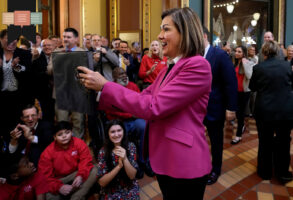
Published October 21, 2020
That’s what makes the recent white paper from the House Republican Study Committee’s American Worker Task Force so intriguing. The document, which contains more than 100 proposals that use government power to increase the employability and skills of American workers, may not have received much attention since it was released last month. But it’s groundbreaking on a philosophical level, and many of the specific ideas are worthy of serious consideration.
Take the approach to higher education. The Republican Study Committee rightly condemns the “Bachelor’s or Bust” mentality that pervades public (and, truth be told, private) K-12 education. Too many students graduate from college with too much debt given the salary levels in the jobs they are qualified for. Just as bad, millions of students drop out of college each year and are burdened with debt they are even less able to repay. Rather than simply replay the old debate with more subsidies for traditional colleges, the report calls for using public resources to prepare students for a different career path that does not require college at all.
Click here to read the rest of this piece at the Washington Post’s website.
Henry Olsen is a senior fellow at the Ethics and Public Policy Center.







